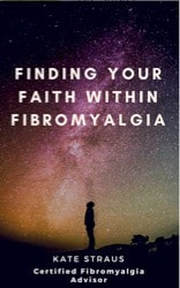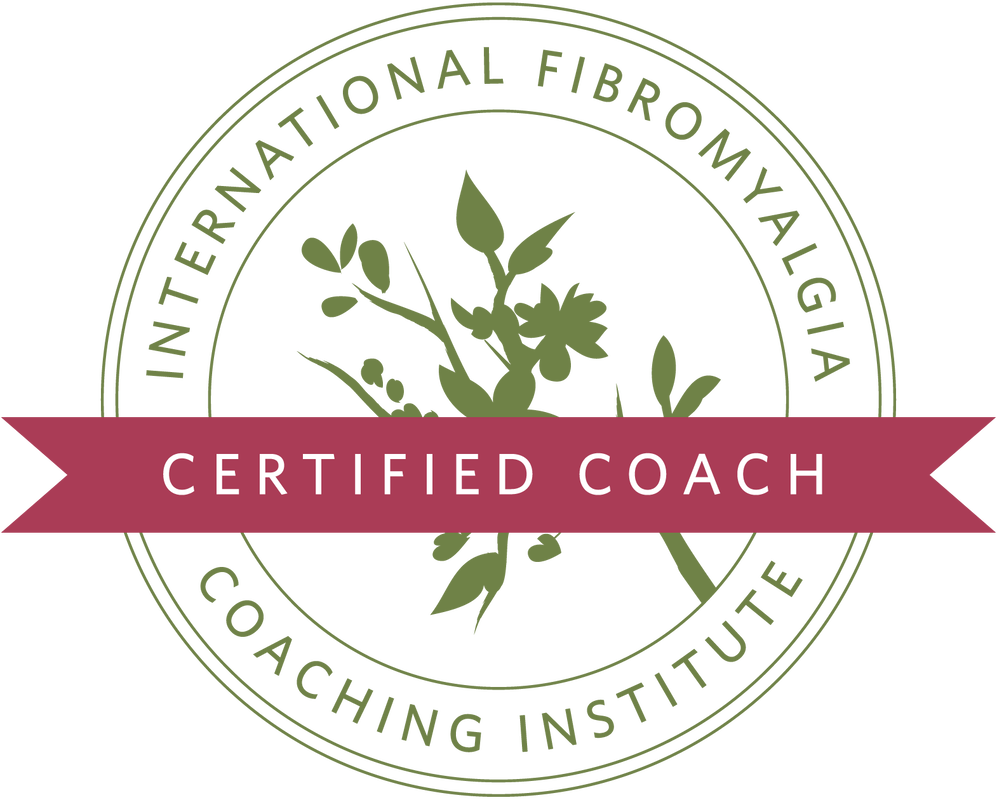|
Everyone loves the fall holidays, right? The scents of the meat juices simmering, the baked goods wafting into the neighbor's yard as they cool on the open windowsill, and the changes of colors from bright summer to autumnal settings at the table. Then, you have the excited anticipation of guests; maybe, you are having family members over that you haven't seen in months! And all the preparation, whew! That's enough to make the “normal” person tired. A person who is living without chronic pain and fatigue would be wiped just thinking about all that needs to be prepared for the holidays. And then you add the “Jewish” in, and you have synagogue attendance, prayer, walking to and from synagogue, as well as to family and friends' houses; and, things just seems to mount up and feel increasingly overwhelming don't they? Ok, let's step back for a minute and start from the beginning, shall we?
Let me introduce you to MY guide to the Jewish (fall) holidays of Rosh Hashana, Yom Kippur, and Sukkot. For those of you who aren't Jewish, I still think there are ways you can identify with this post, but the holidays are hyperlinked for short explanations. Initially, when I was going to write this, I was going to divide it up by holiday but then realized it was completely unnecessary. Also, I need to insert a little caveat: what is appropriate and acceptable for me by law, may not be for you. I highly recommend that you go to your trusted Rabbinic authority on what accomodations can be made for your conditions. For me, it's my LOR (local Orthodox Rabbi); however, I recognize that not all of my Jewish readers are Orthodox. So, you go to the source that you feel best represents you, and can answer your questions about how to observe the holidays to your best ability while still accommodating your needs due to your Fibro and/or other conditions. THE BASICS I'll tell you the basics of what I do, and what has been recommended to me by MY Rabbi and then you can go to yours, and figure out what works best for you within the confines of Jewish law. And, if you aren't observant, then you can just enjoy this little piece written by an Orthodox Jewish woman who once stressed out about figuring out how to observe the Jewish holidays, how to enjoy the Jewish holidays, while living life with chronic illness and chronic pain. ROSH HASHANA I've learned that I NEED my sleep in order to have the energy to go to shul (synagogue) and/or friends/family's houses for meals. I've also learned that I cannot go out for all the meals, and I cannot walk further than 5 blocks to someone's house for a meal, or I will be paying for that in pain for close to a week. Unfortunately, I've also learned I can either go to shul OR a meal. So, often times I daven (pray) at home and will ask someone (on Rosh Hashana [Jewish New Year]) to blow the shofar for me. The demands of standing and sitting in an uncomfortable chair in shul, and then walking somewhere for a meal, where I will again most likely sit in an uncomfortable chair, is too much for my body to handle. These are things that I learned the hard way. And, they still make me sad because I enjoy spending meals with family and friends and I enjoy the services; however, I know I cannot do both. So, if I do not go to shul, I will daven (pray) at home and I have accepted that is ok (and the Rabbi says it is too). YOM KIPPUR Yom Kippur (Day of Atonement) is a whole other ballpark. (Okay, so maybe I am dividing this up by holiday. This is what happens when you write a blog straight off the top of your head.) Most people know that you fast on this day. Fasting in Judaism means NO food, and NO water. There are obvious medical conditions like diabetes, certain points of pregnancy, and other conditions determined by your doctor and Rabbi that can exclude you from fasting. Having fibromyalgia and my other conditions do NOT exclude me from fasting completely; however, because some of my medicines require me to take them with food, I am allowed to take them with the minimal amount (which in my case is one ounce of food and one ounce of water). Again, this is something you need to talk to you Rabbi about. Even pre-fibro, I was a terrible faster. Regardless of the copious amounts of water I drink pre-fast, I get extremely dehydrated which makes me prone to light-headedness, fainting (on occasion), and bad headaches. So, any exersion on my body exacerbates these symptoms. Unfortunately, this means I spend minimal amounts of time at synagogue due to the intensity of prayer, and the uncomfortable sitting arrangment. I will, however, most times, make it to Yizkor (the memorial prayer for the dead), stay for maybe an hour more and finish my prayers resting at home. I used to have tremendous guilt over this, even in my pre-Fibro days. But the mitzvah (commandment) of Yom Kippur is to complete the fast, so if that means missing most of shul, for me, I had to accept it. And now, I do. But, everyone fasts differently, with or without a chronic illness. Again, you need to talk to your Rabbi about your symptoms, whether or not they are related to your chronic illness, and how to address them. The goal is NOT to land yourself in the hospital, or pass out. If you are a terrible faster like I am, please talk to your Rabbi about what to do if you get to a point where you are feeling really ill. There are things that can be done. As my friend says, “don't be a martyr.” Having all these accommodations put into place make an already difficult day, slightly less so, as you know you are fulfill the meaning of the day (even with your accommodations in place). SUKKOT Sukkot is a LONG holiday. 8 days long in fact. I often travel and stay with friends for the holiday which puts additional pressure on myself and my friends to figure if and how I will get to shul. And, when they are invited to their friends houses, am I able to make the walk? Two years ago, I learned a very big lesson. I went to stay with a friend in Miami and made my usual travel accommodations – wheelchair in the airport – but nothing more. Well, I learned that the shul they attended moved as they built a new building, further from my friend's house. I barely made that walk. A 20 minute walk. I never thought that a 20 minute stroll would be difficult, even on flat Miami sidewalks, but boy was I wrong. And then, there was a mile walk to a friend's house for lunch and then another mile walk back to my friend's house. As one of my grandmothers said, “I was done for.” I felt like a screaming-in-pain-pile-of-mush. I could barely make it to dinner, and when my friend came in to wake me the next morning, I could hardly move. I came to realize that I couldn't go to shul – it was too far away. And most of their friends lived pretty far too, so I spent most of my days at their house waiting for them to come home. Gratefully, the weather was fantastic, I caught up on a lot of sleep and reading, and got a LOT of Vitamin D. But, it was a definitely lonely. And, we know that if we choose it, fibromyalgia can become a very lonely condition. I was able to join them at dinners at my friend's parents' house just a couple of blocks away, but it was a startling and saddening realization for both myself and my friend. We both felt bad, and we both didn't know what to do, so we both said nothing. With Sukkot coming up again in just a couple of weeks, I am headed to Miami again. But, before asking my friend if I could come stay with her, I did some research. I didn't want to be left out, and I didn't want my friend to feel guilty leaving me at home. I learned there was a medical supply place where I could rent a wheelchair for the holiday, for those long walks to shul and to friend and families houses. Now came the big and scary question. Would my friend be up to pushing me? Before we answer that question, I had to make sure it was okay to come down to Miami. Well, obviously, you already know that answer. So, in talking to my friend who was excited to have my come visit, she said to me in a message, “The only disclaimer ... is that we would still plan to do whatever walking or eating out that is best for the kids/our schedule/our budget. you'd be included/invited to anything we did but anything that is too much for you, we'll make sure you have what you need at home and catch you later. Promise not to feel guilty if you choose not to join us for something and we promise not to feel guilty for leaving you behind?” How many of you would this upset? It didn't upset me at all. In fact, considering what happened unexpectedly last time, I thought it was completely fair. However, I was prepared for something like that. It was at that point that I brought up the wheelchair and asked my dear friend if she'd be willing to push me. She said YES! I'm grateful to G-d for some incredible friends, including this one. We may learn that depending on the comfort of the wheelchair, my level of fatigue, how much effort it takes her to push me, that there are some days that I still choose to stay home, but at least there are STILL some more options to get out, and there is NO GUILT. SUGGESTIONS Chronic illness causes a lot of guilt on both sides of the coin. For the person suffering, you feel guilty about all the things you used to be able to do and now cannot. Plus, you feel guilty for all the times that you cancel due to your illness. For the people that love someone who is suffering, they feel bad for the person suffering and don't know what to do to help. My amazing friend's immediate decision to agree lightened my heart. It also alleviated a level of stress that both of us were feeling but not communicating over the waves of the internet. STRESS is a key word here, and is something we deal with on a daily basis. To add holidays, Jewish law, travel, etc., only exacerbates that stress. But there are ways to anticipate and possibly avoid some of this. Prepare first, by connecting to your Rabbi well before the holidays are to begin, to determine as someone who lives with chronic illness, someone who has mobility issues, someone who takes required daily medications, what is expected of you. Don't be intimidated by it, because you'll often be surprisingly pleased by the exceptions that can be made so that you can observe the holiday to the fullest without compromising your health. In Judaism, your health comes before everything else. If you had any kind of Jewish education, the laws of holidays and the Sabbath are drilled into you from day one. But, you have to remember always that the most important thing is your health. If your health is being compromised in anyway during the holidays (G-d forbid), then you are required to break the laws of the holiday to focus on your health. You shouldn't just be consulting your doctor and Rabbi about the focus of your health on topics surrounding Jewish holidays, but on a daily basis. They both can provide ways, religious in nature or not, that can be beneficial to your growth and well being. And, this goes for all religions in my opinion. I realize that I wrote this specifically around the Jewish fall holidays; however, I want my non-Jewish fibro warriors to be able to connect to this, too. A Catholic friend that I was talking to recently about this blog told me of her fasting during Lent, and how her mother told her that due to her chronic illness she shouldn't be fasting on those holy days. She didn't know that. If your religion is a large part of who you are, do your research. I didn't know a lot of this either until a friend of mine (who, Thank G-d, does not suffer from chronic pain, but struggles with other issues when fasting) told me that I should be consulting my Rabbi about things like this. Your health always should come first. You should never minimize your health concerns. If you are on medication, there is a reason for it, and it should be taken regularly and the reason for it should be taken seriously. HOW CAN I HELP?? As a Fibromyalgia Advisor, I can only tell you how my Rabbi has guided me through the holidays. I can't advise you as to how to observe yours, I can only tell you to talk to your trusted Rabbinic authority to determine the best course of action for you. But, in terms of other non-medical related stuff, such as spending time with family and friends (which are important to many of us), I have a plethora of ideas. So, let's connect, let's discuss, and let's get started! The holidays really can be fun, especially if you have everything you need put in place before they start. There are obviously always hiccups but they won't be as bothersome when you know what is and isn't acceptable. Wishing those who celebrate a Shana Tova u'metukah. And a G'mar Chasimah Tova!
0 Comments
|
AuthorI’m Kate Straus and I’m a Certified Fibromyalgia Advisor. I help Jewish women feel confident in their ability to practice their faith while navigating the ups and downs of fibromyalgia. I’m using the disease that at one time knocked me down, to help support others live life to their fullest. Archives
January 2021
Categories |

 RSS Feed
RSS Feed


